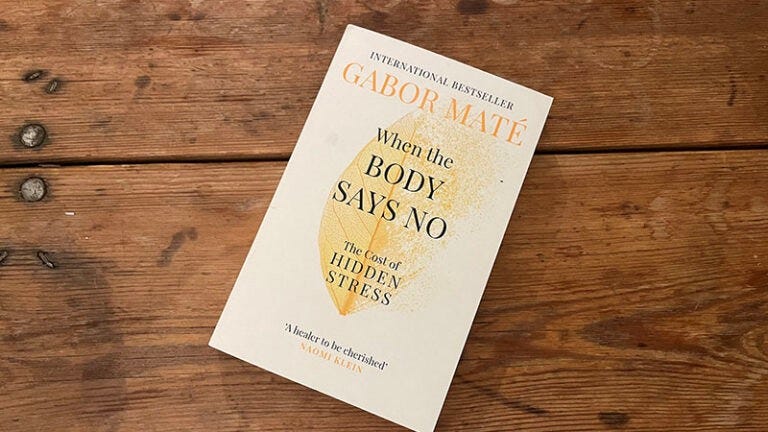Why Do We F*** Up Our New Year Resolutions?
Don't tell me to be the best version of myself! Let's find out why we are doomed to fail this yearly ritual and how can move on with your life without any guilt and pre-made resolutions.
For some reason, I couldn’t make up my mind on the topic of this article. Fatphobia, blue Monday and suicide prevention, cancel culture at work… I couldn’t start any of them. Whether it was a lack of time or simply not being able to focus, as I tucked into a bag of cookies on my sofa, I found myself turning to my best friend, Google and taking a look at what people had been searching for over the past few weeks. Unsurprisingly, the topic of New Year’s resolutions was there.
As managers we are required to improve processes and increase productivity, therefore, setting up goals and objectives should be a walk in the park, right? However, when it comes to keeping our New Year’s resolutions, it’s a totally different story.
As usual, I am sharing some juicy stats, which involve the success rate of our New Year’s resolutions:
After 1 week, 75% are still successfully committed to their promises.
After two weeks, the number drops to 71%.
After 1 month, the number drops again to 64%.
After 6 months, 46% of people who make a resolution are still successful in keeping it… well done to them!
Interestingly, compared to those people who have similar goals but do not set a resolution, only 4% are still successful after 6 months.
According to a YouGov survey, men are nearly twice as likely to claim they kept their resolutions than women are (40% vs 21%). This survey also revealed that “health improvement” New Year’s resolutions such as doing more exercise, eating healthy or losing weight are the top priorities for more than half of Brits (53%). While resolutions to do more exercise or improve their fitness are more popular with men (47%), it seems losing weight and improving their diet are more popular resolutions for women.
That sounds great, but why do we keep f***ing up our New Year's resolutions?
Here are my top 3 reasons why: -
Setting up unrealistic goals… Have you not heard of the SMART model? How many of us think that their New Year’s resolutions will be life-changing without thinking about the efforts and constraints?
No goal progress tracking system in place. It is well known that if you can’t track something you can’t measure it. Although I am not one of those who like to use apps to track my daily steps and calorie intake, not having clear milestones will make it harder, if not impossible, to know when you’ve reached your goal.
Setting too many resolutions. One strong goal is worth more than ten mediocre ones inspired by half-witted and disgracefully bottoxed influencers. Keep it simple!
Forgetting about the resolutions. Which is often caused by having too many resolutions or simply because you didn’t care.
While those reasons seem logical, we know that humans are more complex creatures and most of the time very contradicting. Come on, who doesn’t want to look hot for summer, spend less time on social media, or cut back on the Saturday happy drinks hours? We know change will require effort and sometimes an alternative mindset. And if there is a will, there should be a way. However, the very mindset that can often hold us back can be directly linked to the other thing getting in our way - our habits.
To put it simply, our lives are just a direct manifestation of our habits (good or bad), things we do regularly, whether consciously or subconsciously. So, by breaking our habits, we can change our mindset, and manage to keep our new resolution. Is it that simple?
In his podcast, Steven Bartlett shares 5 Scientific Rules for Making & Breaking Habits, which is worth delving into to find more answers.
The first advice and the most important one is to decrease your stress level, which… well, is a given. Stress can be useful from time to time, allowing you to be more alert and focused and complete tasks more quickly.
However chronic stress can have a detrimental impact on your health, leaving your prefrontal cortex, which is in charge of the “executive functions,” such as thinking and problem-solving in a perpetual state of hypervigilance. As a result, your ability to learn, memorise, and overall cognitive flexibility are at risk to be impaired. Moreover, the constant release of cortisol in your body can cause inflammation and weakens your immune system.
For those interested in the body and mind connection I recommend “When the body says no”, by Gabor Mate which explores ‘Psychoneuroimmunoendocrinology’ (that’s a long word), the science of how our psyche, nervous system, immune system, and endocrine system interact and affect our health.
In his book Gabor Maté delves into how chronic stress, often rooted in emotional patterns, can manifest as various illnesses, including autoimmune diseases, cancer, asthma, and other chronic conditions. Backed up with scientific research that illustrate how unaddressed emotional experiences can influence our immune system, emphasising the crucial link between mind, body, and overall health.
But beyond the impacts of stress, what is interesting to notice is that when we are stressed, we easily make wrong decisions, are quick to seek instant pleasures and are more inclined to fall back to our old habits.
Research shows that people who are good at delaying gratification tend to be better at keeping their new year’s resolutions. This idea has been illustrated with the famous experiment called the “the marshmallow test,” conducted by Stanford University professor Walter Mischel in 1972.
In this study, a child was offered a choice between one small but immediate reward, or two small rewards if they waited for a period. The results show that children who waited to receive the second marshmallow ended up having better grades, lower levels of substance abuse, lower likelihood of obesity, better responses to stress, better social skills but also be better at managing their stress.
One very simple way to decrease your level of stress is sleep. A good night's sleep has so many virtues, but what people don’t know is that sleep helps to regulate a large range of hormones, such as cortisol (stress hormone), Leptin (a hormone that maintains your weight and satiety) and ghrelin (the hunger hormone).
Despite what many of us think, our willpower is not enough to keep our New Year’s resolutions. Psychological researchers have found out that willpower is, in fact, connected to a limited reserve of mental energy, and once we run out of that energy, we're more likely to lose self-control. This concept is called the “willpower depletion”.
The main idea is that self-regulation or self-control is a finite resource. Research has suggested that when individuals exert self-control in one area, such as resisting temptations or making difficult decisions, their ability to exercise self-control in subsequent tasks can be reduced.
Let’s take a daily office example. One of your sugar dealer colleagues has kindly put next to your desk a bag of your favourite comfort food, and you have spent the whole day avoiding it. Yes, your new resolution is to lose, how non-conformist is that! While you are good at reigning yourself in, you will find it harder to resist other temptations.
Therefore, one battle won may result in many losses. This might include skipping a workout or making impulsive decisions. In other words, exerting self-control is not sustainable in the long term and won’t do you any favour in the short term.
However, I couldn’t help but wonder… In a society addicted to the “don’t be too hard on yourself’ motto, it is simply easier to stop counting calories and effortlessly decide to sabotage our path for change, or are we picking the wrong resolution?
If it is the latter, how can we know which is the right one to pick? Whilst choosing the wrong romantic partner, or job opportunity, can lead to murky situations, we should realise that our decisions are the purest expressions of the values we’ve adopted.
Therefore, could the solution be to align our attempt at a 12-month change programme with what is essential to us – being recognised for who we are, spending more time with our loved ones, and belonging to a community?
Measuring the success of our life by the resolutions we will manage to achieve is as tragic as the isolated destiny of these newly married middle-class couples depicted by Philip Larkin in his famous poem “Afternoons”, who seem to have lost control of their lives by living as if “Something is pushing them to the side of their own lives.”
NOTES
Start your long-lasting transformation with a certified body and mind therapist (hypnotherapy, lucid dreaming, EMDR). I look forward to work with you. Book your free consultation now.
SOURCES
- YouGov
- The Diary of a CEO, Steve Bartlett
- What you need to know about willpower
- Afternoon by Phillip Larkin









